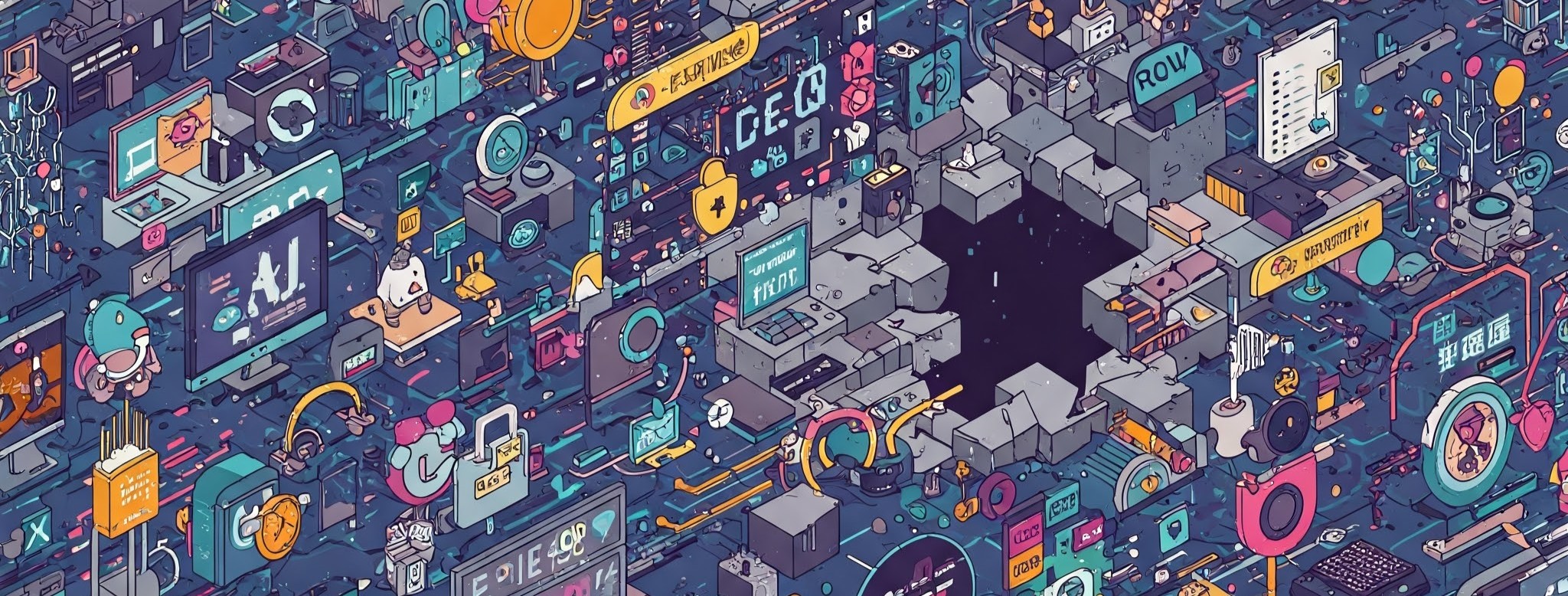
This week Google Next took place over three days, from April 9th until April 11th. I was lucky enough to see what Google had done not only in the last year but what they were planning to do in the future, and obviously AI was a huge piece of this. Since it would be almost impossible to capture all three days in any real detail, I'll just kind of hit the high notes and provide some links for you to dive in. As always, you're welcome to e-mail me and I would love to talk about any of these topics.
First, you'd be surprised to learn that GCP sells infrastructure, or really anything not AI related! Whether it was the main keynote, the developer keynote, or even the Expo floor there was hardly a mention of anything that was not directly related to AI, agents, or agentic capabilities. I was also caught by the distribution on the Expo floor and how I think the focus on AI left partners struggling. I would estimate that the Expo floor (by square footage) was about 50% Google, 10% luminary sponsors, which was mostly consultancies, maybe about 20% product companies with a heavy skew toward AI solutions, and then about 10% of everybody else. A clear example of this for me was there were only two VARs that weren't the major consultancies. Presidio and CDW both had very small closet-like areas, and CDW didn’t even bother to show up. I'm not entirely sure how to act upon this information, but compared to previous years and other vendors conferences this was extremely visible.
Second, it's clear why Google is focusing on AI, they are the well deserved leaders. Whether it's the new models being announced like Lyria, the new frameworks like Agent2Agent (A2A) (which doesn't compete with MCP), the new capabilities built around Google Agentspace, or the ways that Google and the consultancies are delivering real world applications for their customers (click the image on the left for more), Google's investment in this space is clearly having a meaningful impact. I was really impressed with the focus on customer outcomes with Gen AI as opposed to just the technology for the sake of technology. However, there were some cases where all of the fears creators and artists have around generative AI are clearly founded. I'm not just talking about the ability to create videos from single images, or the ability for marketers to do a lot more visuals without needing to employ any people (start the keynote from here).
I think it was inadvertently telling that during the major keynote Nenshad Bardoliwalla showed off Lyria by making a copy of a Rick Astley song as part of the demo. I'm not sure I would have gone there, but it very quickly highlighted to me the idea that not only are we training this capability on copyrighted works, but we can very easily abuse that training by design. This is putting artists, whether they be visual, auditory, or otherwise, at risk.
Third, and to bring us to the purpose of this blog, I found the security conversations and partners to be underwhelming. I look at the A2A announcement as a great example. Foundational security was talked about and slightly glossed over, but it's clear that real security consideration was not put in early. Now what do I mean by that. Check out this Google Search looking for information about security in the Agent2Agent protocol, you'll notice no Google links with any details, and only vendor links with minimal comments. Over a year ago I asked the question to some of my colleagues about when would somebody try to shoehorn Zero Trust into AI. Luckily, inside the LLMs and other models, we haven't really gotten there yet. However, when you talk about an agent to agent framework, this would be a reasonable time to start talking about zero trust principles because we are talking about potentially multi owner models where you don't necessarily know that you can trust the downstream. But instead of putting any type of real identity audit controls into A2A, it has started out as a straight communication mechanism. I'm not saying that it is bad, don't get me wrong, but I think if we were taking security truly seriously and trying to lay the right foundation for the future, we would have seen more here.
The same lack of presence was true for the partners. I expected to see a lot of GenAI specific security companies, but I couldn't find them. (Eventually Generative Security will happily the at the conference as a sponsor or speaker but we're not there yet.) Overall, the only people I saw talking about security were really the consultancies. In conversations with them we're still talking basics of data classification, network controls, and tagging. Again, I'm not saying these things are easy to solve or else as an industry we wouldn't be grappling with them 40 years on now. But we're not talking about the new risks. On the one hand it's great that when I talked about how Generative Security looks at attacking business logic and not the technology itself almost everybody's eyes went wide, and said “Wow you're right, that's a real problem.” So at least we know we're heading in the right direction.
Overall, if you believe in the hype of AI, this was a meaningful conference. The keynotes, the sessions, and the Expo floor would have given you a lot of information and a lot of takeaways to go back. If you're an AI developer, or a developer trying to figure out how to use AI, or a business owner looking to understand the use cases and whether or not AI is something you care about, this was a great conference. If you're in Google cloud for any other reason you probably left disappointed. My 2 biggest takeaways are, 1) this needs to be more than 2 1/2 days because there's so much more to Google cloud than just AI; and 2) we are so early days of generative AI security, and we need to do better, and we will.

About the author
Michael Wasielewski is the founder and lead of Generative Security. With 20+ years of experience in networking, security, cloud, and enterprise architecture Michael brings a unique perspective to new technologies. Working on generative AI security for the past 3 years, Michael connects the dots between the organizational, the technical, and the business impacts of generative AI security. Michael looks forward to spending more time golfing, swimming in the ocean, and skydiving... someday.